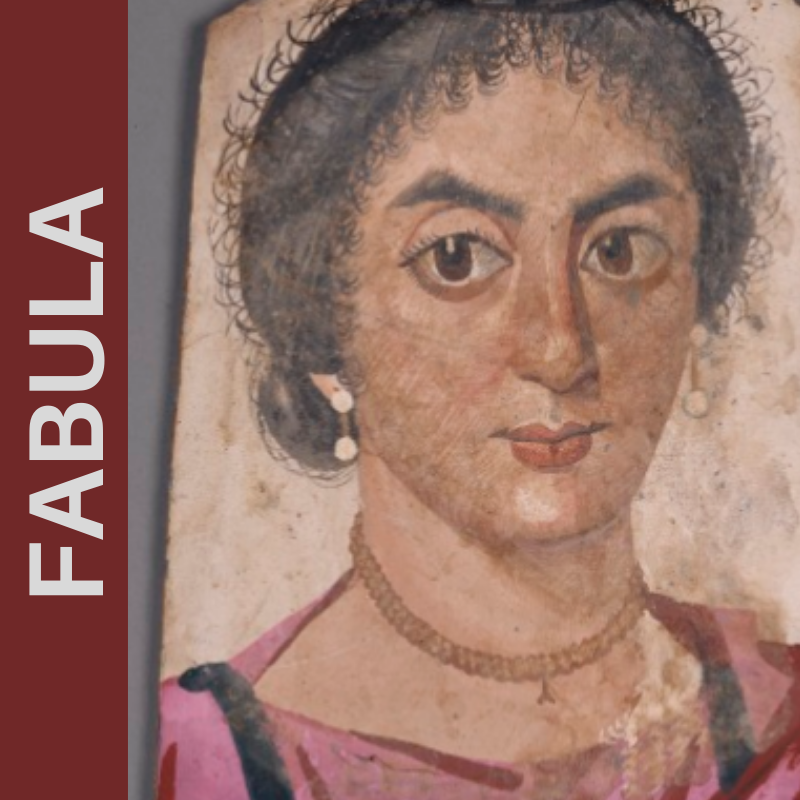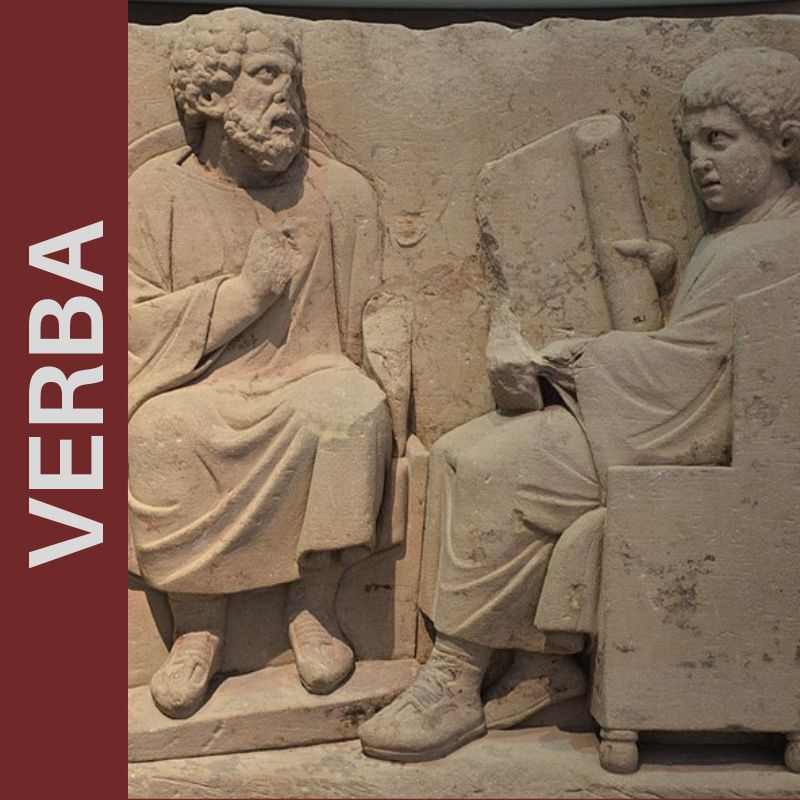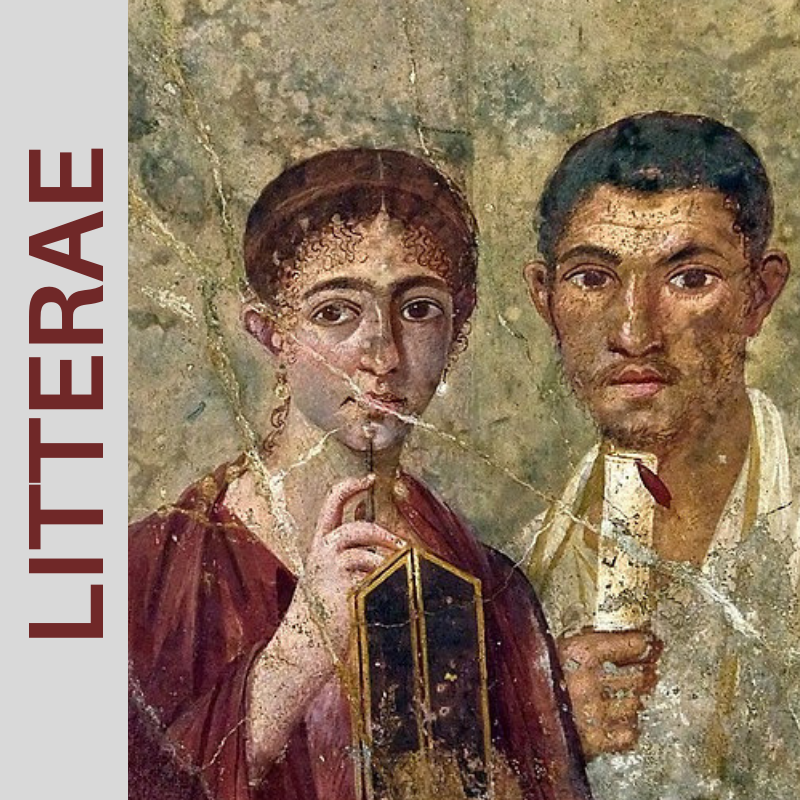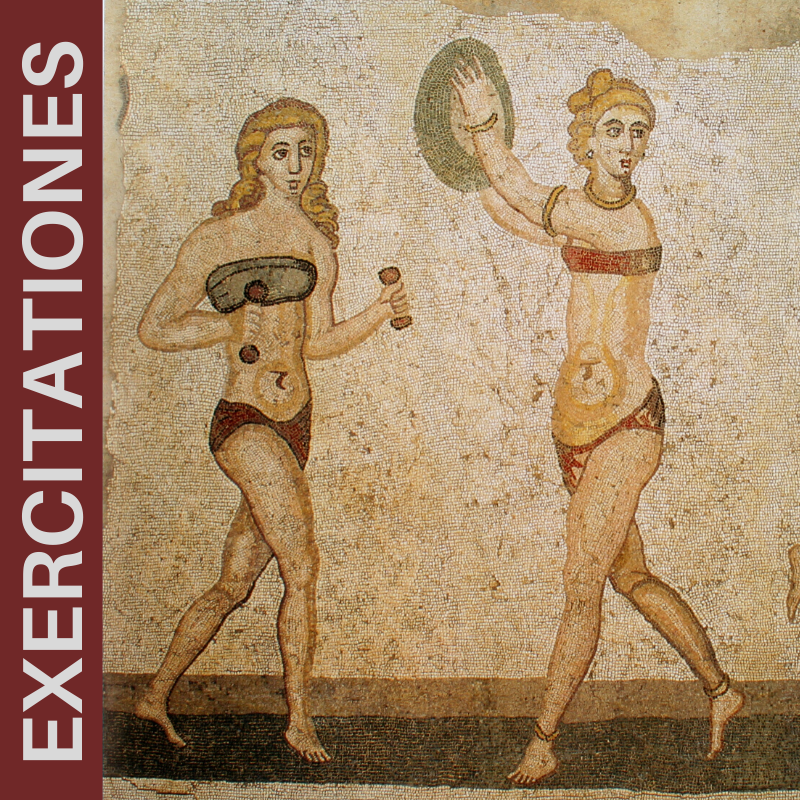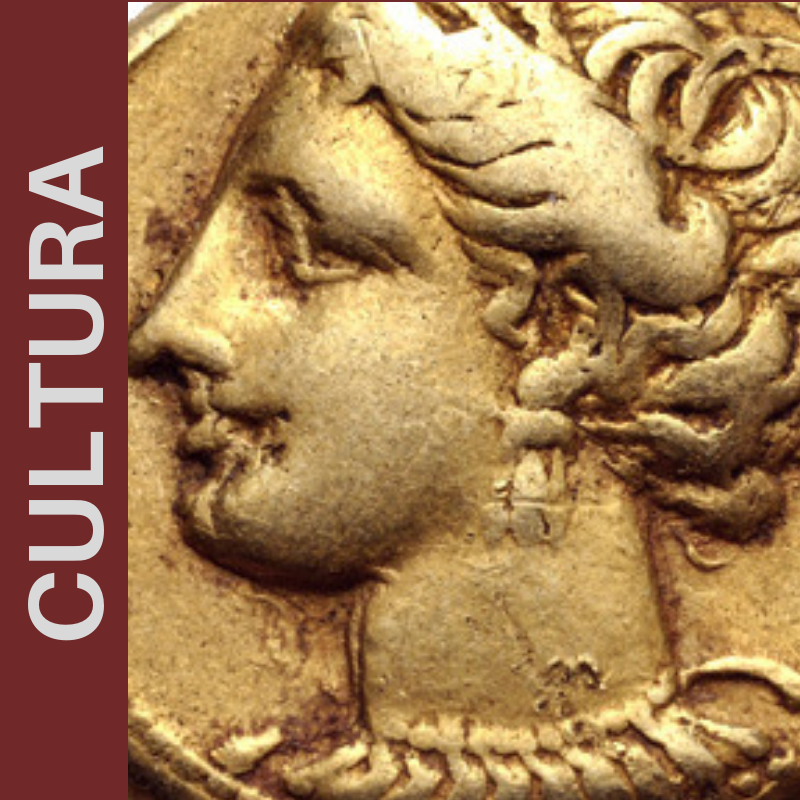A
Caenis is Raped and Becomes a Man
(Adapted from Ovid Met. 12.189-209)
Caenis, virgo pulchra et clara formā, nata est in Thessaliā, filia Lapithae. Multos procos diu habuit, a quibus etiam multum amata est, et in Thessaliā (urbe tibi, Achille!) et in regionibus propinquis. Noluit tamen in matrimonium duci, sed virgo semper manere vult. Tunc procedens sola in litore secreto, ipsa vim dei maris passa est (ita fama referebat). Postquam novae Veneris voluptatem ceperat Neptunus, dixit “Licet tibi unum votum habere. Quid quaeris? Ora me si quidquam vis.” Et Caenis, petens unum locuta est, “Istud scelus, quod fecisti, non leve votum exigit. Nolo aliam vim numquam rursus pati. Ergo da mihi hoc votum: non esse feminam. Si hoc unum dabis, omnia habebo.” Simul haec verba ab ore misit ac iam vox gravis erat et viri esse visa est. Nam iam deus voto viri motus erat. Et eodem tempore dedit deus corpus quod nullis armis cadi potuit. Caeneus ipse illo dono magno dei gaudens ab litore abiit et ad studia belli magnā cum virtute se contulit.
Nota
In this passage from The Metamorphoses of Publius Ovidius Naso (43 BCE – 18 CE), Nestor tells Achilles the story of Caenis, a young woman from Thessaly who is raped by Neptune, the god of the sea, and prays to be turned into a man to escape sexual violence.
Caenis, -is f.: A mythological heroine who becomes a man and a famed warrior after she is raped by the god Neptune.
formā: “for beauty” (ablative of specification)
Thessalia, -ae f. - Thessaly is a part of Greece known for strong horses, Achilles’ birthplace, and witchcraft.
Lapitha, -ae m. - Lapith (The Lapiths were a mythological tribe of people who lived in Thessaly)
procus, -i m. - suitor
Achille: Achilles, the addressee of this story, was the greatest Greek warrior to fight in the Trojan war. Like Caenis, he had a history of gender transgression.
propinquus, -a, -um - neighboring, nearby
matrimonium, -i n. - marriage
secretus, -a, -um - remote, solitary, out of the way
Venus, Veneris f. - Venus, the goddess of sexual desire. Her name can be used as shorthand for sex, as here.
exigo, -ere, -egi, -actum - to require, demand; to drive out
B
Boudicca, Leader of Celtic revolt in Britain, Meets her Death
(Adapted from Tacitus Annales 14.35-38)
Boudicca ipsa et filiae curru ad socios suos accesserunt et ad quos illa rettulit: “Licet Britannis facere feminas duces. Nunc venio non quia ex regibus nata sum, sed quia ego ipsa, sicut vos omnes, libertate careo. Decet ducere mihi. Meum corpus laesum est, et meae filiae corruptae sunt. Spectate illas copias et causas belli. Quid mavultis - aut mori aut vincere? Sic mihi, feminae, videtur. Viri, si optatis, vivere et servi esse potestis.” Eodem tempore Suetonius, qui legiones Romanas ducebat, suis militibus haec dixit: “Multas feminas, paucos viros, videtis. Istae, cum arma vincentium et virtutem militum Romanorum viderint, cedent. Eaedem ad nos bellum inferre non audebunt.” Tum Romani cum Britannis proelium fecerunt. Milites nostri celeriter hostes vicerunt et etiam feminas interfecerunt. Hoc tempore clara fama nobis erat. Octoginta milia Britannorum ceciderunt et quadringenti Romani interfecti sunt. Boudicca finem vitae veneno effecit. Tum legiones Romanae collatae sunt, quae cum equitibus hostes sequebantur. Mox finis belli erat.
Publius Cornelius Tacitus (56 - 120 CE) recounts the rebellion led by the Celtic war queen Boudicca against Roman rule of Britain. In 60 or 61 CE, Boudicca’s forces clashed with the Roman army, under the command of Gaius Suetonius Paulinus. Here Tacitus describes the speeches each leader gave their troops, the battle, and death of Boudicca.
Boudicca, -ae f. - Boudicca
curru: “chariot” (abl. sg. m.)
Britannus, -a, -um - inhabitant of Britain
dux, ducis m./f. - leader, general
sīcut - just as (adv.)
Octoginta - 800
milia - “thousands” (nom. pl. n.)
quadringenti, -ae, -a - 400
venenum, -i n. - poison
C
The Epitaph of Allia Potestas
(Adapted from CIL VI.37965 = CLE 1988)
Dis Manibus Alliae Potestatis, Auli Libertae
Hīc Perusina femina sita est. Pretiosior seduliorque est nulla femina. Quamquam tam magna in vitā eras, iam in hac seriolā parvā teneris. Dura Fortuna tristisque Persiphone, cur semper capis bona ab nobis infersque mala? Hoc quaeritur ab omnibus qui dant lacrimas, animi boni signa; ego autem non possum dicere. Haec femina erat fortis, sancta, valida et nota populo. Brevi sermone dixit et verbis paucis est usa. Lanam fecit quam numquam sine causā relinquit. Nec ipsa sibi nimium placuit; nec voluit libera videri. Candida autem erat oculis pulchris et lux in ore mansit, quem nulla femina numquam habuit. Forma mammarum in pectore erat brevis. Quid crura? Similia erant eis deae. Manus autem fuerunt durae. Dum vixit haec, duo iuvenes amantes cum eā vixerunt. Una domus tres diu habebat unusque animus. Nunc tamen post huius mortem, tempus breve perdidit id quod condidit una femina. Tibi hoc carmen dat flens sine fine patronus, cui nulla femina post te numquam visa est aut cara aut bona. Si verba nostra valebunt, in carmine meo semper vives. Imaginem solam pro te teneo quam colimus et cui damus flores multos. Cum ad te veniam, eadem imago mecum sequetur. Ei mihi! Me vicisti: Fortuna mea tua est.
Qui hoc sepulcrum laesit, ausus est quoque laedere deos ipsos; nam haec, laudata hoc titulo, numen habet.
Allia Potestas was a freedwoman who lived during the Roman empire (between the 1st–4th centuries CE). The only evidence we have for her life comes from this 50 line hexameter verse epitaph written on her tombstone.
Dis Manibus Alliae Potestatis, Auli Libertae: “To the shades of Allia Potestas, Aulus’ freedwoman.” (a common beginning to funerary inscriptions.)
Perusinus, -a, -um - Perusinian, denoting someone or thing from the Italian town of Perugia.
Hic sita est: “Here lies buried...” a phrase commonly found on tombstones.
pretiosior: “more dear” or “more expensive” (nom. sg. fem.). This may be an off color joke about the fact that Allia was likely a sex worker (at least at some point in her life).
sedulior: “more hard working” (nom. sg. fem.)
seriola, -ae f. - little jar. Cremated remains were often kept in decorative urns and jars.
Persiphone: Persephone is the queen of the underworld and wife of Hades.
lana, -ae f. - wool
candidus, -a, -um - white, fair
oculis pulchris: “in her beautiful eyes” (ablative of specification)
forma, -ae f. - beauty
mamma, -ae f. - breast
crus, cruris n. - leg
manus: “hands” (nom. pl. f.)
duo: “two” (nom. pl. m.)
tres: “three” (m./f. acc. pl.)
patronus, -i m. - patron (After an enslaved person was manumitted, she would still be formally attached to her former enslaver, but the relationship would change to resemble that between a patron and client.)
ei mihi!: “Woe to me!”
titulus, -i m. - inscription
nūmen, nūminis n. - divine will, deity
D
Sulpicia in Love
(Adapted from Sulpicia 1-3)
Sulpicia 1
Magnus amor venit quem non possum tegere. Fama mihi est clarior pudore. Meae Camenae Venerem moverunt, quae eum in meum sinum contulit. Meas voluptates aliquis forte audiet qui non amat et non amatur; forte eas ad omnes referet. Nolo enim quicquam tabellis signatis tegi. Licet enim ulli homini legere quod scripsi priusquam legit etiam meus amor. Et iuvat erravisse et taedet faciem diversam aliis ferre. Digna tamen cum digno esse habebor.
Sulpicia 2
Tristis natalis mihi adest qui mihi non placet quoniam nec in urbe nec cum Cerintho sum. Nam quid est dulcius? Licetne puellam manere solam in hāc villā? Noli agere curam nimium de me, Messalla. Neque illae viae ad villam neque terra ipsa mihi placent. Quamquam ducta ad tuam villam (vetas me ire quo volo!), animum tamen totum in urbe relinquo.
Sulpicia 3
Ipsum iter triste ex animo puellae latum est! Iam licet mihi natali Romae esse. Ille natalis, qui nunc ad me forte refert, cum voluptate ab omnibus nobis agetur.
Sulpicia was an aristocratic Roman woman who composed poetry during the reign of Augustus (27 BCE - 14 CE). Although many ancient women wrote, Sulpicia’s poems are the only verses of a Roman woman that survive in any length. Her six extant poems provide unique insight into romantic love from a woman’s perspective.
clarior pudore: “brighter than modesty”
Camenae, -arum f. pl. - The Camenae were native Italian muses associated with poetry and prophecy
Venus, -eris f. - Venus, the goddess of love and sexual desire.
sinum - “lap” (acc. s. masc.)
forte - by chance
tabellis signatis: “sealed tablets” (abl. pl. fem.)
taedet - it is boring, tiring (impersonal verb)
priusquam - before, previously (conj. and adv.)
natalis, -e - pertaining to birth, birthday
Cerinthus, -i m. - Cerinthus, Sulpicia’s boyfriend.
dulcius: “sweeter” (nom. sing. neut.)
villa, -ae f. - country house, villa
Messalla, -ae m. - Mesalla. Marcus Valerius Messalla Corvinus (64 BC – 8 AD) was a Roman politician, military leader, orator, and patron of poets. His own writings, which included a personal account of the civil wars, an account of senatorial Roman families, and poetry on erotic, satirical, and pastoral themes, is not extant.
E
Catullus’ Boyfriend
(Catullus 48 unadapted)
Mellitos oculos tuos, Iuventi,
si quis me sinat usque basiare,
usque ad milia basiem trecenta,
nec numquam videar satur futurus,
non si densior aridis aristis
sit nostrae seges osculationis.
Catullus (c. 84 – c. 54 BCE) lived towards the end of the Roman Republic and wrote poetry on many topics including love, politics, death, traveling, family, and mythology. He wrote six poems about his boyfriend Juventius that provide an important, but by no means unique, Roman perspective on homoerotic desire.
Mellitus, -a, -um - honey-sweet
oculus, -i m. - eye
sinat: “allow” (present subjunctive, see Unit 6)
quis: shortened form of aliquis
usque - constantly, up to
basio (1) - to kiss
milia - “thousands” (acc. pl. n.)
basiem - “I would kiss” (subjunctive mood of basio, see Unit 6)
trecenta - three hundred
satur, -a, -um - sated, full
densior aridis aristis: “thicker than dried grain” (nom. s. f.)
sit: “is”
seges, segetis f. - crop, harvest
osculatio, -tionis f. - kissing
Except where otherwise noted, material by Roman and Beyond: a Latin Curriculum is licensed under a Creative Commons Attribution-NonCommercial-ShareAlike 4.0 International License.
